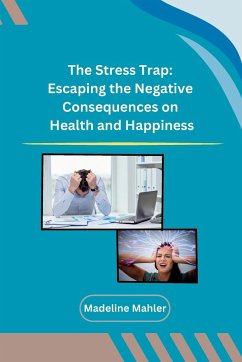In order to understand the negative effects of stress on our health and happiness, it is essential to delve into the physiology of stress. Stress is a natural response of our body to any demand or threat that we perceive. Whether it is a looming deadline at work, a conflict with a loved one, or a traumatic event, our body reacts in a specific way to protect us. When we encounter a stressful situation, our brain triggers the release of stress hormones, primarily cortisol and adrenaline. These hormones prepare our body for a fight-or-flight response, enabling us to either confront the source of stress or escape from it. In this state, our heart rate increases, blood pressure rises, and muscles tense up, all as a way to provide us with the necessary energy to deal with the threat. While this stress response is crucial in times of immediate danger, it becomes problematic when it is prolonged. Chronic stress, which occurs when we face continuous stressors without relief or relaxation, takes a toll on our physical and mental well-being. One of the major negative effects of chronic stress is its impact on our cardiovascular system. The increased heart rate and elevated blood pressure associated with stress can lead to hypertension, heart disease, and even heart attacks. Additionally, stress can weaken our immune system, making us more susceptible to illnesses and infections. Furthermore, chronic stress has a profound impact on our mental health. It can contribute to the development of anxiety disorders, depression, and other mental illnesses. Prolonged exposure to stress hormones can also affect our brain's structure and function, impairing memory, concentration, and decision-making abilities. In addition to these physiological effects, chronic stress can disrupt our sleep patterns, leading to insomnia or poor quality sleep. This, in turn, further exacerbates our stress levels, creating a vicious cycle. Understanding the physiology of stress is essential because it allows us to recognize the signs and symptoms that indicate we are under chronic stress. By identifying these indicators, we can take proactive steps to manage and reduce stress in our lives. Through practices such as exercise, mindfulness, and seeking social support, we can counteract the negative effects of stress and promote our overall health and happiness.
Hinweis: Dieser Artikel kann nur an eine deutsche Lieferadresse ausgeliefert werden.
Hinweis: Dieser Artikel kann nur an eine deutsche Lieferadresse ausgeliefert werden.








